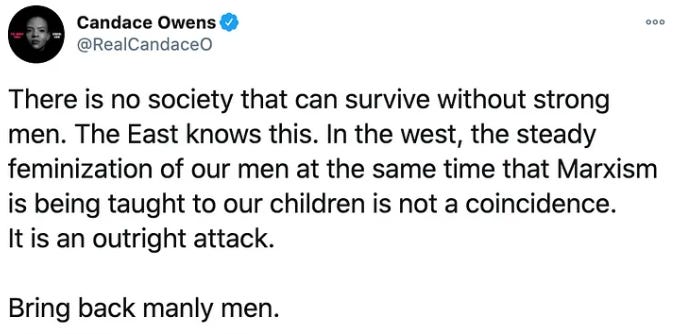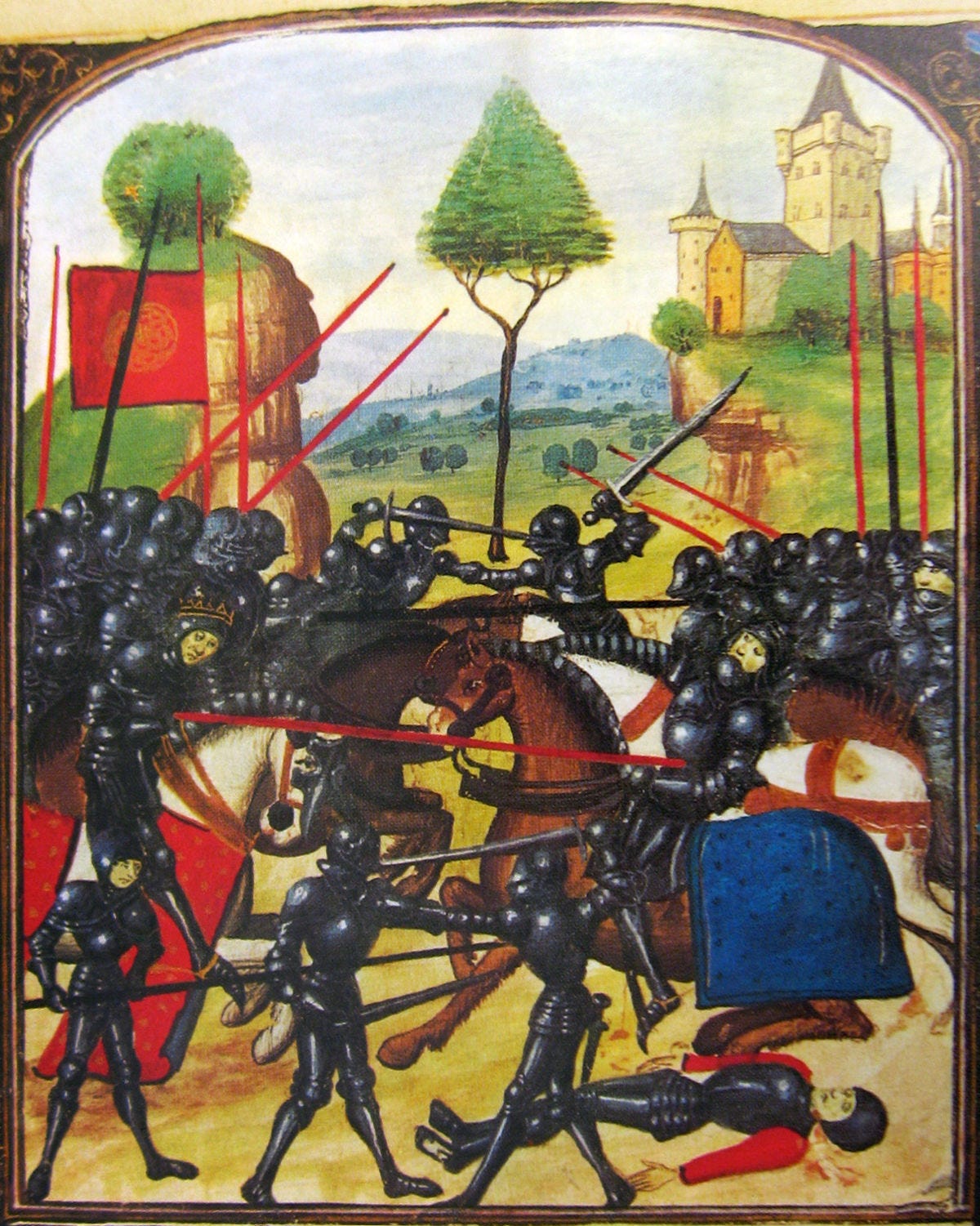Patriarchy Parallels Annotation Ep. 1
This Substack, 15thCFeminist, was created out of necessity for sanity; seeking a place to explore neurodivergent fixations that are outside the scope of my book.
I love highlighting women who have been erased or minimized from the Middle Ages because they too deserve center-stage for their (largely uncredited) cultural and social impacts, but I feel the need to also have a place to explore anti-patriarchal thoughts without centering women/a woman; so, enter the Patriarchy Parallels Annotation series.
In this series I will share the striking parallels between patriarchal thinking then and now. What has changed since the 1400s, or unfortunately and more accurately, what hasn’t.
First up: The necessity of compartmentalization to partake in the patriarchy.
“Patriarchy encourages men to surrender their integrity and to live lives of denial. By learning the arts of compartmentalization, dissimulation, and disassociation, men are able to see themselves as acting with integrity in cases where they are not.”1
Richard III’s 2-year reign ended the Plantagenet dynasty in 1485. Though his reign was brief, ““Richard III has divided opinion for five hundred years. To many, he has always been a villain, a bloody tyrant and detestable child murderer deservedly overthrown. To others he was and remains a hero, a noble prince and enlightened statesman tragically slain. So strong is his appeal in the twentieth century that a flourishing society exists, dedicated to the task of clearing his name. Uniquely among the kings of medieval England he has the power to generate passionate commitment and blind devotion. In the eyes of some followers there are only anti-Ricardians and pro-Ricardians; pro-Ricardians fighting anti-Ricardians to vindicate Richard’s reputation. There are those for whom Richard’s innocence of the charges laid against him, especially that he murdered the Princes in the tower, is an article of faith.”
The blind devotion folks will have towards a “man’s man” for realizing toxic traits of masculinity is what continually uplifts harmful men, such as Donald Trump, into positions of power worldwide.

I’m currently reading Richard III and the Princes in the Tower by A.J. Pollard, published in 1993, and this quote struck me: “There is nothing in the events of 1471 to mark out the eighteen-year-old Richard as a cold-blooded and heartless murderer.” This line, after describing his brutal hand-to-hand melee at Tewkesbury: “[Edward] sent Gloucester into a frontal attack in command of the first division. He was met by the duke of Somerset. After bitter hand-to-hand fighting Gloucester’s men gained the upper hand…”, seemed strikingly disassociated from the reality of what was being discussed.
Not to mention the brief allusion to Richard being in the thick-of-it at Barnet a few paragraphs earlier: “Several members of his retinue were killed at his side and he clearly acquitted himself with honour.”2
War of all nature is ugly. Medieval wars were beyond that. Without the distance afforded by modern technology, battles of the Middle Ages were brutal, up-close-and-personal slaughtering’s, typically followed by a batch of beheadings, hangings, and/or quarterings.
As Constable of England during this time, Richard would have been in charge of orchestrating these post-battle butchering’s, expected to preside over them and be present for the blood-bath.
But sure, nothing indicated this man was a murderer… Aside from all of the killing, that is.
It made me think of this bell hook’s quote: “Eruptions of rage in boys are most often deemed normal, explained by the age-old justification for adolescent patriarchal mis-behavior, “Boys will be boys.” Patriarchy both creates rage in boys and then contains it for later use, making it a resource to exploit later on as boys become men. As a national product, this rage can be garnered to further imperialism, hatred, and oppression of women and men globally. This rage is needed if boys are to become men willing to travel around the world to fight wars without ever demanding that other ways of solving conflict be found.”3
“Being a man doesn’t make you take more risks; being a man who thinks men take more risks is what’s associated with higher risk-taking… Masculine stereotype conformity turns out to be a better predictor of risk-taking than biological sex.”4
Then, as now, we glorify men who take risks and wrap their masculinity into that as if it’s an identity. Richard III "acquitted himself with honour" for partaking in the slaughtering of his fellow Englishmen, while "Henry VI was one of the most spineless men ever to have sat on the thrown. Vacillating, feckless and profligate.” More curiously disassociated words from Pollard.
Barring the reality of Henry VI’s well documented mental health struggles, labeling a man’s entire character as incompetent and debauched because he chose not to rule through fear and to break the mold of patriarchal regency seems a bit brazenly cocksure. As Liz Plank wrote: “When a culture sets up specific rules about men, they don’t need to be imposed by a higher power because men end up imposing them on one another. They police others in an effort to express their respect of the code that our culture has established.”
In 2018 Harvard Business Review published research that “found that men who are more communal and agreeable (e.g., warm, caring, supportive, sympathetic) made significantly less money than more stereotypically masculine men. More agreeable men across multiple industries made an average of 18% less in income and were evaluated as less likely to have management potential as compared to less agreeable men.”5
Half a millennia later and men are still kowtowing to the patriarchy in much the same way. Being penalized, both financially and socially, for breaking the mold of behaviors that excuses violence as a gendered trait to be expected.
The Will to Change, bell hooks
Richard III and the Princes in the Tower, AJ Pollard - Interesting read, especially for the images included. First R3 book I’ve read that was published prior to his remains being found and some of the conjecture was curious (and disproved.)
The Will to Change, bell hooks
For the Love of Men, Liz Plank via research from Marie-Axelle Granié
https://hbr.org/2018/10/how-men-get-penalized-for-straying-from-masculine-norms




